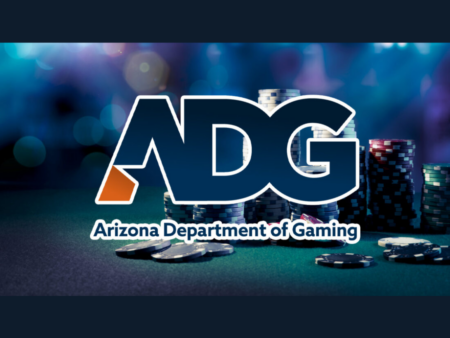The British charity GambleAware has recently published an update on the donations it received during the first quarter of the 2024/25 fiscal year. Covering the period from April 2024 to June 2024, the report details a total of £294,722.99 (approximately $388,000) in contributions directed towards Research, Prevention, and Treatment (RPT) services.
A Consistent Funding Pattern: Understanding the Donations
GambleAware’s latest financial report underscores the stability in its funding model, with the first-quarter contributions closely mirroring those received in the initial quarters of the past four financial years. This consistency is pivotal for the charity as it enables sustained support for critical RPT services across the UK. The charity relies heavily on these donations to maintain its robust network of prevention and treatment initiatives aimed at reducing gambling-related harm.
Notably, the report highlights a recurring trend in which smaller donations are received in the early quarters of the fiscal year, followed by a significant influx of funds towards the year-end. This pattern reflects the industry’s donation practices, where gambling operators tend to contribute more generously as the fiscal year progresses, often influenced by their financial performance and regulatory settlements.
The Role of Regulatory Settlements in Funding
In addition to voluntary donations, GambleAware’s Q1 2024/25 report reveals that the charity received £40,000 through regulatory settlements. These funds are part of a broader mechanism designed to ensure that gambling operators contribute to the social responsibility initiatives mandated by the UK Gambling Commission. The regulatory settlement funds are typically final transfers from monthly installments agreed upon between the commission and the operators, in line with the Statement of Principles.
These regulatory settlements are a vital component of GambleAware’s funding strategy, as they provide a reliable and often substantial source of income that complements voluntary donations. The inclusion of these funds in the Q1 report underscores the charity’s diversified funding streams, which are essential for maintaining the continuity and effectiveness of its RPT services.
The Impending Shift to a Statutory Levy
The 2024/25 fiscal year is poised to be a watershed moment for GambleAware and the broader gambling sector in the UK. According to the charity’s report, this year is expected to be the last in which GambleAware relies primarily on voluntary donations from gambling operators. This transition is driven by growing concerns about the sustainability and fairness of the current funding model, which has been criticized for creating a dependency on the very industry it seeks to regulate.
The UK government’s recent Gambling Act white paper has proposed the introduction of a statutory levy system as a more equitable and stable funding mechanism. Under this system, all licensed gambling operators would be required to contribute a fixed percentage of their revenues to GambleAware, ensuring a steady and predictable flow of funds for RPT services.
GambleAware’s Response to the Statutory Levy Proposal
GambleAware has welcomed the proposed statutory levy, viewing it as a necessary evolution in the funding of gambling harm prevention and treatment services. The charity believes that a statutory levy will not only provide a more reliable source of income but also reduce the potential conflicts of interest inherent in a voluntary donation system.
However, GambleAware has also emphasized the importance of maintaining adequate funding levels during the transitional period to the new system. The charity’s CEO, Zoe Osmond, has voiced concerns that any disruption in funding could have serious consequences for the availability and quality of RPT services. Osmond’s call for continued support during this transition reflects the charity’s commitment to ensuring that no gaps emerge in the critical services it provides to those affected by gambling harm.
Implications for the Gambling Industry and Public Health
The move towards a statutory levy represents a significant shift in the relationship between the gambling industry and the organizations tasked with mitigating its negative impacts. For the industry, this change may bring about increased financial obligations and stricter regulatory scrutiny. However, it also offers an opportunity for operators to demonstrate their commitment to social responsibility and the well-being of their customers.
For public health advocates and those working in the field of gambling harm prevention, the statutory levy is seen as a positive development that could lead to more consistent and effective funding for essential services. The increased financial security provided by the levy could enable GambleAware and other organizations to expand their programs, reach more individuals in need, and ultimately reduce the prevalence of gambling-related harm in the UK.
Conclusion: Preparing for the Future of Gambling Harm Prevention
As GambleAware navigates the final year of its current funding model, the charity remains focused on its mission to prevent and treat gambling-related harm across the UK. The Q1 2024/25 donations report is a testament to the ongoing support from the gambling industry, but it also highlights the challenges and opportunities that lie ahead.
FAQs About GambleAware’s Q1 2024/25 Donations Report
1. What is GambleAware?
GambleAware is a British charity dedicated to preventing and treating gambling-related harm. It relies on donations from the gaming industry to fund its Research, Prevention, and Treatment (RPT) services.
2. How much did GambleAware receive in donations during Q1 2024/25?
GambleAware received £294,722.99 (approximately $388,000) in donations during the first quarter of the 2024/25 fiscal year.
3. How does this amount compare to previous years?
The amount received in Q1 2024/25 is consistent with the donations GambleAware has received in the first quarters of the past four financial years.
4. What are regulatory settlements, and how do they contribute to GambleAware’s funding?
Regulatory settlements are funds transferred as part of agreements between the UK Gambling Commission and gambling operators. In Q1 2024/25, GambleAware received £40,000 from such settlements, which are crucial for supporting the charity’s initiatives.
5. Why is there a shift to a statutory levy system?
The shift to a statutory levy system is proposed to provide a more stable and equitable funding mechanism for GambleAware, as the current voluntary donation system has raised concerns about the charity’s dependence on the gambling industry.
6. What is a statutory levy?
A statutory levy is a mandatory financial contribution from all licensed gambling operators, calculated as a fixed percentage of their revenues. This system is designed to ensure consistent funding for organizations like GambleAware.
7. How will the statutory levy impact the gambling industry?
The statutory levy may increase financial obligations for gambling operators and lead to stricter regulatory scrutiny, but it also provides an opportunity for the industry to demonstrate a commitment to social responsibility.
8. What are the potential benefits of the statutory levy for public health?
The statutory levy is expected to provide more consistent and reliable funding for services that prevent and treat gambling harm, allowing for expanded programs and broader reach to those in need.
9. What concerns does GambleAware have regarding the transition to the statutory levy system?
GambleAware is concerned that any disruption in funding during the transition could negatively impact the availability and quality of RPT services. The charity emphasizes the need for continued support during this period.
10. How does GambleAware plan to use the funds received in Q1 2024/25?
The funds will be used to support GambleAware’s ongoing RPT services, which are designed to prevent and treat gambling-related harm across the UK.


















